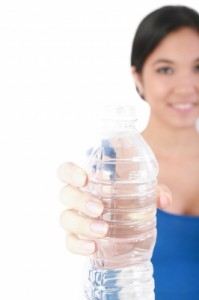 Have you been feeling fatigued lately? Chances are you’re dehydrated. Did you know our bodies are made up of about 60% water? And that each system in our body is dependent on water? That means that our skin, hair, nails, body temperature, heart rate and blood pressure all need water to be healthy. It can be hard to stay properly hydrated, and even harder when the work day gets away from you. But, as you can see, hydration is vital so you can continue to be a functional human being. Read on for facts and tips to stay hydrated!
Have you been feeling fatigued lately? Chances are you’re dehydrated. Did you know our bodies are made up of about 60% water? And that each system in our body is dependent on water? That means that our skin, hair, nails, body temperature, heart rate and blood pressure all need water to be healthy. It can be hard to stay properly hydrated, and even harder when the work day gets away from you. But, as you can see, hydration is vital so you can continue to be a functional human being. Read on for facts and tips to stay hydrated!
First, what counts as water?
Besides obviously good old H2O, there are many other sources where your body can get water. Fruits, for example, can be an excellent source. Watermelon is actually composed of about 90% water. Other fruits that rank high in water content are oranges, grapefruit, cantaloupe and honeydew. Vegetables, though not as full as fruit, can also be a source of water. The best water-filled vegetables are celery, tomatoes, green peppers and romaine lettuce. Other foods that contain a substantial amount of water are oatmeal, yogurt, soup and smoothies.
Milk can also be a good choice to stay hydrated. Sodas, though lacking in nutritional value, can still be a source for hydration if it comes down to it. If you crave the flavor of a soda, juice or sports drink, try adding some water to it to dilute the sugar. Coffee and non-sweetened tea would also be better options. Alcohol is an obvious dehydrator, but if you do indulge in a drink, try to maintain a 1:1 alcoholic beverage/water ratio. If drinking plain water is hard for you, try adding some lemon to it or even trying out sparkling water.
How much water do I need?
Well, it depends. Some determining factors include weather, what clothes you’re wearing and intensity of activities you are performing. For example, a person that sweats a lot will need more water than someone who doesn’t. If you have certain medical conditions such as diabetes, you will need to drink more. If you are on medication that acts as a diuretic (check with your doctor), you will need more water. When exercising, a good test to tell how much water you need is to weigh yourself before and after your workout to see how many weight you’ve lost through sweat. For every pound of sweat lost, that means a pint of water to replenish.
How can I tell when I’m dehydrated?
Contrary to what many people go by, feeling thirsty is not the best indicator of hydration level. If you get thirsty, you are already dehydrated. As cliché as it is, your urine really is the best indicator. The paler the color, the more hydrated you are. If you are not sweating during intense activities, this should raise a huge red flag that you’re dehydrated to the point of heat exhaustion.
Hydration is important for everyone — whether you’re a professional athlete or someone who sits at a desk from 8-5 each day. Especially during these upcoming summer months, you’ll want to make sure to drink a bit more water as the weather heats up!
Do you have any other helpful tips for staying hydrated? We’d love to hear from you! Leave a comment below, or connect with us on Facebook, Twitter or Google+.
